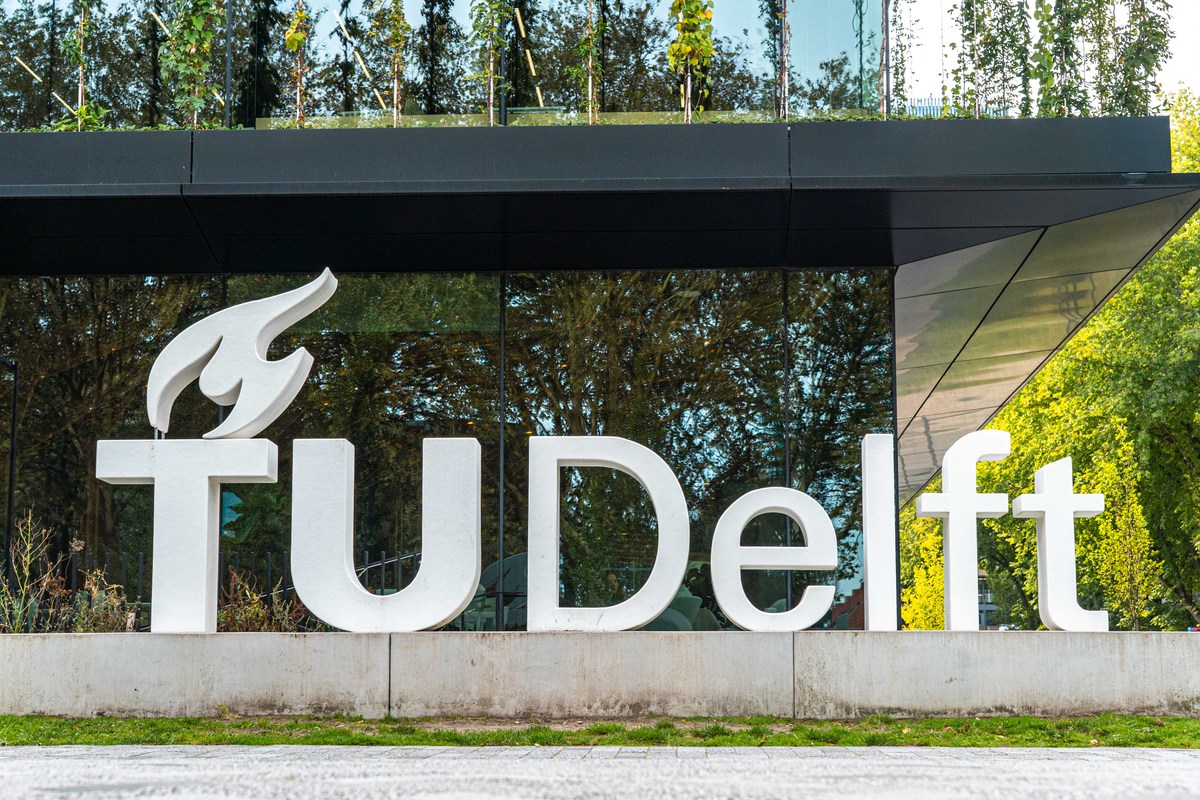On Monday 15 April, the Executive Board sent a Delta reporter away from an open meeting with three internal trade unions. The public and a Berenschot advisor were welcome. Both the FNV Government trade union and the Nederlandse Vereniging van Journalisten condemn their action.
(Photo: Thijs van Reeuwijk)
Representatives of the internal trade unions at TU Delft, also called the trade unions in the Local Consultation Body, met with Executive Board member Marien van der Meer on social safety. Rector Magnificus Tim van der Hagen also attended. Shortly before the meeting started, Van der Meer, the Vice President of Operations, sent all observers – including a Delta reporter – away.
Eight minutes later, Van der Meer informed Delta that it was not permitted to report on the meeting. Other attendees and an external advisor from the Berenschot consultancy firm were welcome. Matthijs Valent, Online Media Secretary at the Nederlandse Vereniging van Journalisten (NVJ, Netherlands association of journalists) says that there “is absolutely no justification for expelling journalists from a public meeting where everyone else, including people from outside the organisation, were welcome. We demand an end to this intimidation.”
On the spot
Van der Meer says that the decision was taken in consultation with the trade unions, but they dispute this. Fred Veer, the Chair of the internal trade unions, says that they were given a choice: either meet without Delta or not meet at all. The three representatives were put on the spot and tried to make the best of a bad situation. “This was going much too far,” says Veer. “We see transparency as enormously important, as is reporting for our members and other TU Delft employees. But no meeting would have meant that we could not have an input in the social safety plan of action, which needs to be in its final stages this week. This was the reason that we opted to continue the meeting.”
Bernard Koekoek of FNV Government calls the way things were handled ‘unacceptable’. “This was a one-off and should never again,” he says. “It was a public meeting. Sending a journalist away shows indifference to Delta, while the Executive Board is supposed to protect journalists.”
Listen to the victims
During the meeting, one of the points that the internal trade unions raised was that the Executive Board should take more time to listen to the victims of anti-social behaviour. “Up to now, no attention has been paid to this. You cannot solve a problem without listening to the people who have actually experienced it.”
Last month, most of a meeting of the representation bodies on social safety was declared closed to others. Delta could only report on the last public half hour. The reason for this is still unclear. Questioning the Board Secretary of the Executive Board, André Groenhof, did not clarify much. The only thing he was willing to say was that “it was a joint decision”.
Hollow claims
Whether representation bodies’ meetings are open or not is laid down in the Higher Education and Research Act, but according to Peter Kwikkers, who specialises in higher education management, policy and law, the Act does not contain any rules about journalists. “In general, it is within the law to close the doors of a public meeting. If done properly, this is stated in the regulations or consultation protocol. But whether it is administratively and politically wise to do this is another question.” He continues. “You can imagine that in a subject like this openness would be desirable and the presence of the press deemed normal rather than unusual.”
A couple of hours after the meeting with the internal trade unions, the Delta Editorial Office felt the need to take an article about the lack of social safety offline after both TU Delft and the Director named in the article threatened it with legal action. One day later the Executive Board offered its apologies. NVJ Secretary Valent says that “The Executive Board’s claim that they view the freedom of the press as hugely important sounds very hollow in the face of silencing Delta and frustrating its journalism through legal threats.”
Findings
The Inspectorate of Education investigated transgressive behaviour at TU Delft from December 2022 to November 2023. In the resulting report, the investigators speak of intimidation, racism, sexism, bullying, exclusion, gossiping, social insecurity due to lack of leadership and a culture of fear, among other things. For instance, employees are said to be afraid to voice their opinions and hold each other accountable for behaviour.
The effects among TU Delft employees who have reported to the inspection are often long-lasting and hampering. The inspectorate speaks of psychological and physical health complaints, absence from work and a general feeling of insecurity. Stress, burnout, depression and PTSD, crying and tense home situations also occur, as do illness, vomiting at work, panic attacks and heart palpitations.
The inspectorate reports that TU Delft’s university administration has a lot of information regarding what is happening in terms of social safety, but that they ‘omit to add everything up so as to create a complete picture’. ‘The management’ also ‘does not adequately manage in terms of appropriate measures’. The Inspectorate believes that this is mismanagement.
Read the news and background articles on the Inspectorate’s report in our dossier.
- Delta is looking for current and former TU Delft staff members who are willing to share their experiences. This can be done anonymously if preferred. Email tudelta@protonmail.com.
Do you have a question or comment about this article?
a.m.debruijn@tudelft.nl


Comments are closed.